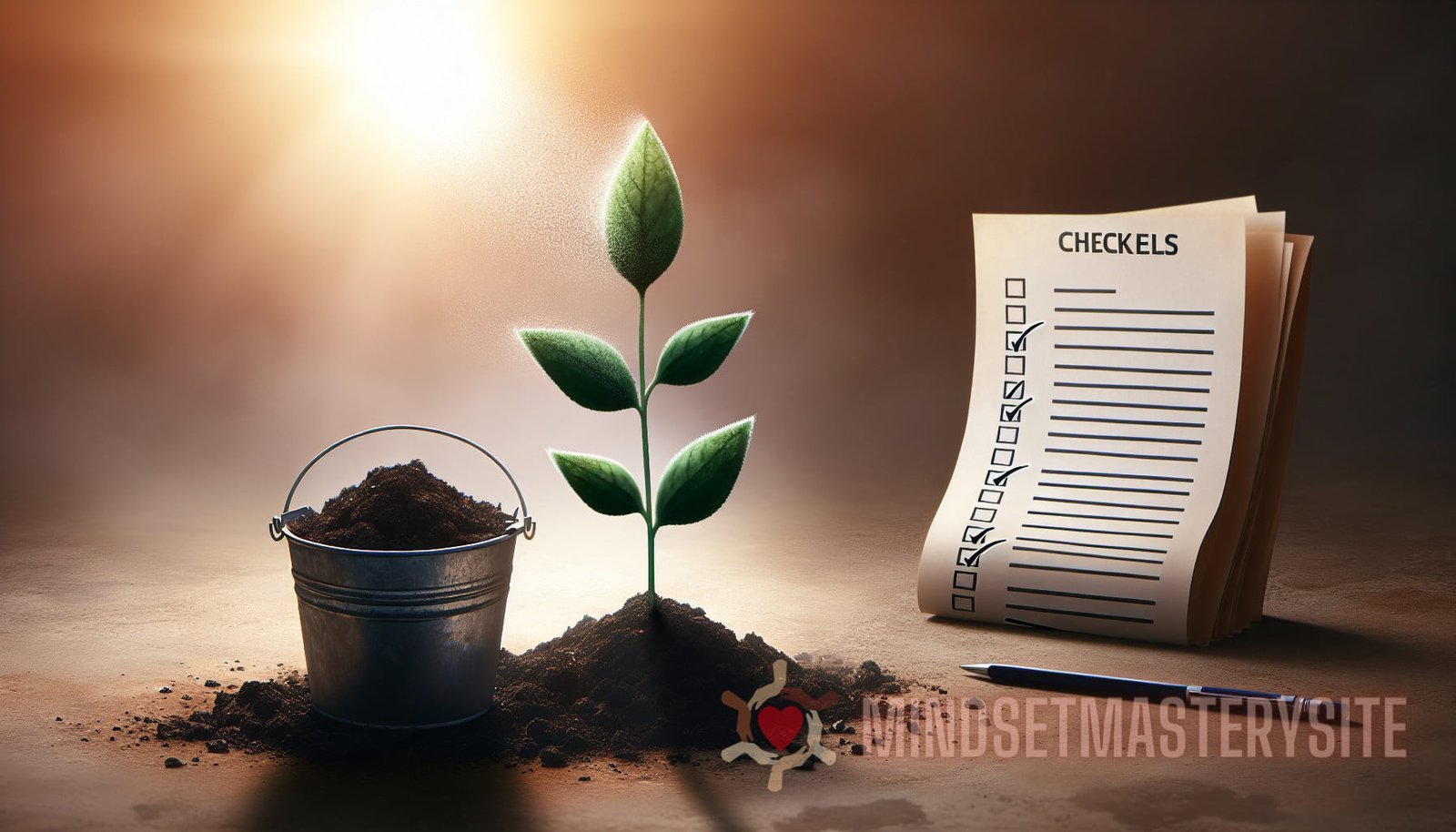Beyond the Bucket List: Crafting Goals for Personal Growth
Setting goals is an essential part of personal growth. It gives us a sense of direction, purpose, and fulfillment. While many people have a bucket list of things they want to accomplish before they die, it’s important to go beyond that and craft goals specifically for personal growth. In this article, we will explore the concept of personal growth goals, how they differ from a bucket list, and how they can help us unlock our true potential for success.
What Are Personal Growth Goals?
Personal growth goals are specific objectives that individuals set to improve themselves intellectually, emotionally, spiritually, or physically. They focus on self-improvement and are designed to help us become the best versions of ourselves.
Unlike a bucket list, which primarily consists of external achievements and experiences, personal growth goals involve internal transformation and growth. They are not just about ticking off items on a list, but rather about the journey and the long-term impact on our lives.
Personal growth goals can encompass a wide range of areas, including:
- Developing new skills or talents
- Improving mental and emotional well-being
- Strengthening relationships
- Expanding knowledge and intellectual growth
- Cultivating a spiritual practice
- Nurturing physical health and fitness
- Building resilience and overcoming challenges
By setting personal growth goals, we actively participate in our own growth and development, creating a roadmap to become the best version of ourselves.
Why Personal Growth Goals Matter
Personal growth goals are not just about achieving specific outcomes, but also about the process of personal development itself. Here are a few reasons why setting and pursuing personal growth goals matter:
- Self-Discovery: Personal growth goals allow us to explore our true passions, interests, and strengths. Through the process of setting and working towards our goals, we gain a deeper understanding of ourselves and what truly brings us joy and fulfillment.
- Continuous Learning: Personal growth goals keep us engaged and motivated to learn new things. Whether it’s acquiring new skills or expanding our knowledge, the pursuit of personal growth goals helps us stay intellectually curious and open to new opportunities.
- Increased Self-Awareness: Setting and pursuing personal growth goals require introspection and self-reflection. It helps us gain clarity about our values, beliefs, and desires. This increased self-awareness allows us to align our goals with our authentic selves, leading to a greater sense of purpose and meaning.
- Empowerment: Achieving personal growth goals empowers us to take control of our lives and make positive changes. It boosts our self-confidence, self-esteem, and resilience. By setting and working towards our personal growth goals, we become active participants in shaping our own destiny.
- Overall Well-being: Personal growth goals contribute to our overall well-being. They promote mental and emotional wellness, improve relationships, and enhance physical health. Pursuing personal growth goals can lead to greater happiness, fulfillment, and satisfaction in life.
- Unleashing Our Potential: Setting and achieving personal growth goals unlocks our true potential. It allows us to push beyond our comfort zones, overcome challenges, and discover our hidden capabilities. By continuously striving for personal growth, we can reach new heights of success and fulfillment.

Crafting Effective Personal Growth Goals
Crafting effective personal growth goals requires careful consideration and planning. Here are some steps to help you in the process:
- Self-Reflection: Take the time to reflect on your current strengths, weaknesses, interests, and aspirations. What areas of your life do you want to improve, and what kind of person do you want to become? Self-reflection forms the foundation for setting meaningful personal growth goals.
- Specificity: Make your goals specific and measurable. Vague goals like “be more successful” or “improve my health” are less effective than specific ones such as “increase my income by 20% in the next year” or “lose 10 pounds by the end of the month.” Specificity provides focus and clarity, making it easier to track progress.
- Realistic and Attainable: Set goals that are challenging yet attainable. While it’s important to aim high, setting unrealistic goals can lead to frustration and discouragement. Break bigger goals into smaller, more manageable steps to ensure success along the way.
- Time-Bound: Set a timeline for achieving your goals. This creates a sense of urgency and helps you stay motivated. It also allows you to break down your goals into actionable steps and monitor your progress along the way.
- Accountability: Share your goals with others or find an accountability partner. This helps keep you on track and provides support and encouragement when faced with challenges. Consider joining a support group or finding a mentor who can offer guidance and accountability.
- Adaptability: Be open to adapting and adjusting your goals as needed. Life is unpredictable, and circumstances may change. It’s important to be flexible and willing to modify your goals if necessary, while still staying focused on your overall vision for personal growth.
Remember, personal growth is a lifelong journey, and our goals may evolve as we grow and change. It is crucial to regularly review and revise our personal growth goals to ensure they align with our evolving aspirations and circumstances.
Integrating Personal Growth Goals with Other Goal-Setting Techniques
Personal growth goals can be integrated with other effective goal-setting techniques to maximize their impact and success. One such technique is the SMART goal-setting framework. SMART stands for Specific, Measurable, Achievable, Relevant, and Time-bound, and it provides a structured approach to goal setting. By aligning your personal growth goals with the SMART criteria, you enhance their effectiveness and increase your chances of success.
For more information on SMART goals and how to use them in conjunction with personal growth goals, check out this article.
Conclusion
Setting personal growth goals goes beyond simply creating a bucket list of experiences. It involves a deep understanding of oneself, a commitment to continuous learning, and a desire to become the best version of oneself. Personal growth goals contribute to our overall well-being, increase our self-awareness, and unlock our true potential for success.
If you’re ready to go beyond the bucket list and embark on a journey of personal growth, start by reflecting on your aspirations, set specific and measurable goals, and integrate these goals with effective goal-setting techniques. By doing so, you’ll pave the way for transformative personal growth and a life filled with purpose, fulfillment, and success.



